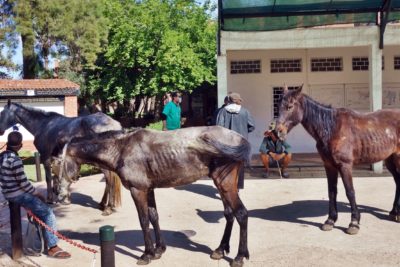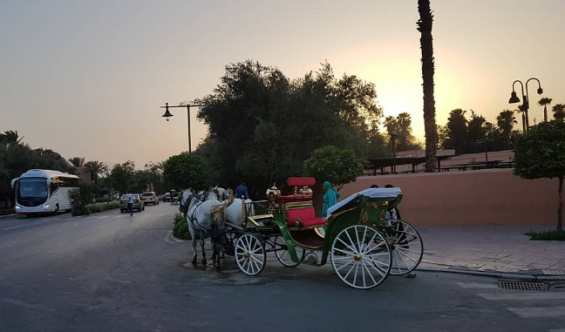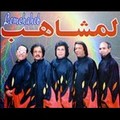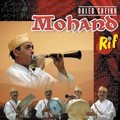In mid-March, Morocco implemented a travel ban, closing airports and grounding international flights. Since then, hundreds of tourism workers have been struggling to feed their working animals.
In Marrakech, caleche horses have been suffering from malnutrition as their owners lost their incomes amid the coronavirus crisis. Aziz, a Marrakech carriage driver, has been jobless since March 14. Burdened by the need of supporting his family, the man has to care for his four horses. «Since tourism collapsed, I have been struggling to feed them», he told Yabiladi.
«It takes 300 dirhams a day to feed one of these horses, which is hard to maintain these days given the current situation», Aziz explained. «All carriage drivers are in the same boat», he regretted, adding that after trying to get by with his own means to care for his horses, he had to ask for help.
Alongside other tourism workers with working animals in the city of Marrakech, Aziz benefited from an emergency feeding program launched by international animal charity Spana. The aid helped desperate owners feed almost 593 horses in Marrakech and Aït Ourir, a neighboring town, Spana said.
 Starving horses helped by Spana in Marrakech. / SPANA
Starving horses helped by Spana in Marrakech. / SPANA
«I received concentrated feed sacks for my horses», Aziz gratefully declared. Unsure about when and how the tourism sector would recover from the coronavirus crisis, he stressed that despite the aid provided, «the situation remains alarming for people like [him]».
Working animals and the tourism crisis
«We have no idea when will be able to resume work and even if the lockdown is lifted our income is mainly based on foreign tourists», he regretted.
With three horses to feed and a family to care for, Mohamed voiced the same worries. «I benefited twice from Spana’s program which helped feed the animals and whenever I can I try to help by buying carrot leftovers in farmer markets and get grass from nearby farms», he told Yabiladi.
Torn between his household expenses and feeding his horses, Mohamed warned that most of these animals «have been suffering from malnutrition» amid the crisis. «They used to consume more than what we give them these day…it is not that we don’t want to do more but this is what we can afford now», he said.
But while Mohamed and Aziz decided to share what they have with their working animals, other carriage drivers in Marrakech were forced to abandon them. «Some of our peers were forced to sell their horses as they couldn’t take any more. They thought that it is better to sell, even for half the price, to others who can take better care of them», Mohamed regretted.
Imlil's mules
Not very far from Marrakech, working mules that used to help carry tourists climb Mount Toubkal are also affected by the crisis. In Imlil, a small village in the High Atlas mountains, mule owners are struggling to keep their animals alive as tourist activities have ceased since March.
«Mules in Imlil are the main source of revenue for many families», mountain guide Rachid Ait Ifraden told Yabiladi. Relying on mule owners in the town during his hiking expeditions with tourists, Ait Ifraden explained that the situation is mainly hard on the «animals themselves who keep roaming the mountains to eat grass».

Indeed, Hassan who owns mules in Imlil, explained that when owners are desperately out of food, they release these animals to graze. «That is not enough but some of us can’t afford food». «We buy them barley and hay to fill them up these days», Hassan said.
«It takes from 40 to 50 dirhams a day to feed one mule but when we have no choice we just let them graze in the mountains», he said. Hassan and other mule owners in the village have not received any aid to feed their working animals. «Tourism is everything for us and without it we can’t support our families let alone feed these poor animals», he concluded.
While other workers are awaiting the end of the lockdown to resume their activities, others working in the tourism industry might have to wait longer before travel bans are lifted.





 chargement...
chargement...













